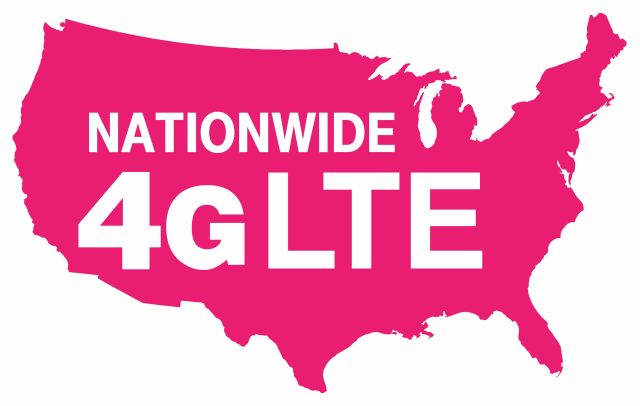
T-Mobile US says it has more money than it needs as it gets ready for a major spectrum auction scheduled for early next year. The company wants to get enough low-band spectrum to cover the whole US, and will be able to achieve that with billions of dollars to spare, T-Mobile CFO Braxton Carter said today at a financial conference hosted in Arizona by Deutsche Bank.
After consulting with the major credit rating agencies, T-Mobile found that it can spend up to $10 billion without harming its ratings. But T-Mobile will probably only need $1 billion or so to achieve its primary goal at the auction, Carter said. (Here's a recording of Carter's remarks; FierceWireless also has a roundup of what he said.)
The Federal Communications Commission auction will shift airwaves in the 600MHz range from TV broadcasters to wireless carriers. These low-band frequencies are crucial for building a cellular network that can cover long distances and penetrate building walls. One macrocell tower that uses low-band spectrum can cover the same geographic area as five macrocells using the mid-band spectrum T-Mobile typically relies upon, Carter said.
But T-Mobile has already covered more than half the US population with low-band spectrum since buying 700MHz A-Block airwaves from Verizon early last year, Carter said. The primary goal in the 600MHz auction is to acquire enough airwaves to cover the rest of the country, including a lot of rural areas, he said.
T-Mobile can do that without having to bid against AT&T and Verizon, because the FCC is setting aside spectrum for carriers with fewer low-band airwaves. T-Mobile doesn't even have to compete against Sprint, which won't be bidding.
"Completing that full national footprint on low-band, it's very affordable," Carter said. "I can't imagine it would be over a billion, a billion and a half dollars to do that."
In addition to that, T-Mobile may buy spectrum in markets where it already has low-band airwaves, to boost coverage.
The FCC is reserving up to 30MHz in each geographic area for companies without huge low-band spectrum portfolios. T-Mobile pushed the FCC to set aside more than that, but today Carter said, "we're certainly not going to buy 30MHz."
Carter didn't say how much T-Mobile would buy in markets where it lacks low-band spectrum. But he said the company could buy another 10MHz in markets where it already has 12MHz of the A Block spectrum. Carriers need lots of capacity in major urban areas, he noted.
Carter said he's not surprised that Sprint isn't bidding on 600MHz spectrum. "Even before they made their announcement we were pretty confident they didn't have the financial wherewithal to participate," he said.
But that doesn't mean T-Mobile won't have any competition in the auction. There are regional and rural carriers in addition to the big four nationwide ones. Cable companies and tech companies could also get involved, he said. Dish Network is a question mark because the FCC recently rejected its attempt to get $3.3 billion worth of spectrum discounts intended for small businesses.
Dish co-founder and Chairman Charlie Ergen "won't have the firepower he had before," Carter said.
Still lagging behind AT&T and Verizon
T-Mobile also supports LTE in higher frequencies such as 1700MHz and 2100MHz, which allow for faster speeds but cover shorter distances and don't work as well indoors. T-Mobile hasn't been able to match AT&T and Verizon in overall network ratings, due in large part to poorer rural coverage.
T-Mobile bought $1.8 billion worth of 1700 and 2100MHz spectrum at another FCC auction early this year, while AT&T spent $18.2 billion and Verizon spent $10.4 billion. T-Mobile will likely continue to spend less than the big two.
"We don't have the balance sheet of AT&T and Verizon, so we have to be disciplined," Carter said. Yet he argued that T-Mobile's 700MHz rollout is "eliminating a lot of that historical disparity" between his company and its two biggest competitors.
Carter said he expects T-Mobile to eventually merge with another company or enter some kind of partnership. "It's not a question of if, it's a question of when and with who because we are uniquely positioned to partner strategically with another company," he said. Carter said T-Mobile could do "some really cool things" with Dish, which has bought lots of spectrum but hasn't deployed it.
While a Sprint/T-Mobile merger was prevented by US regulators who didn't want the market to go from four to three major carriers, Carter said he expects more competition in the future.
"I think a few years from now we'll laugh at the thought that there are only four carriers in the marketplace," he said.
reader comments
101